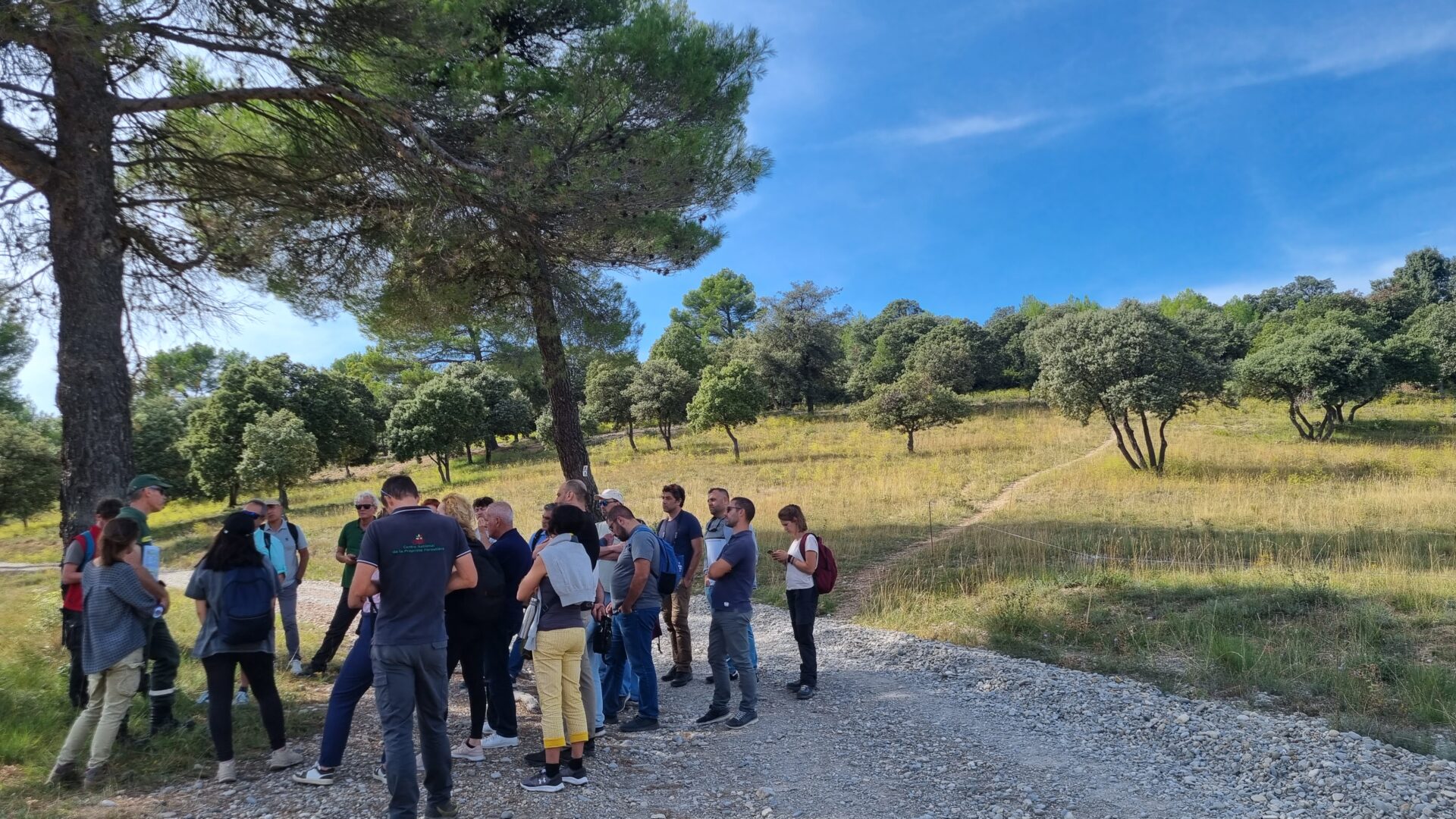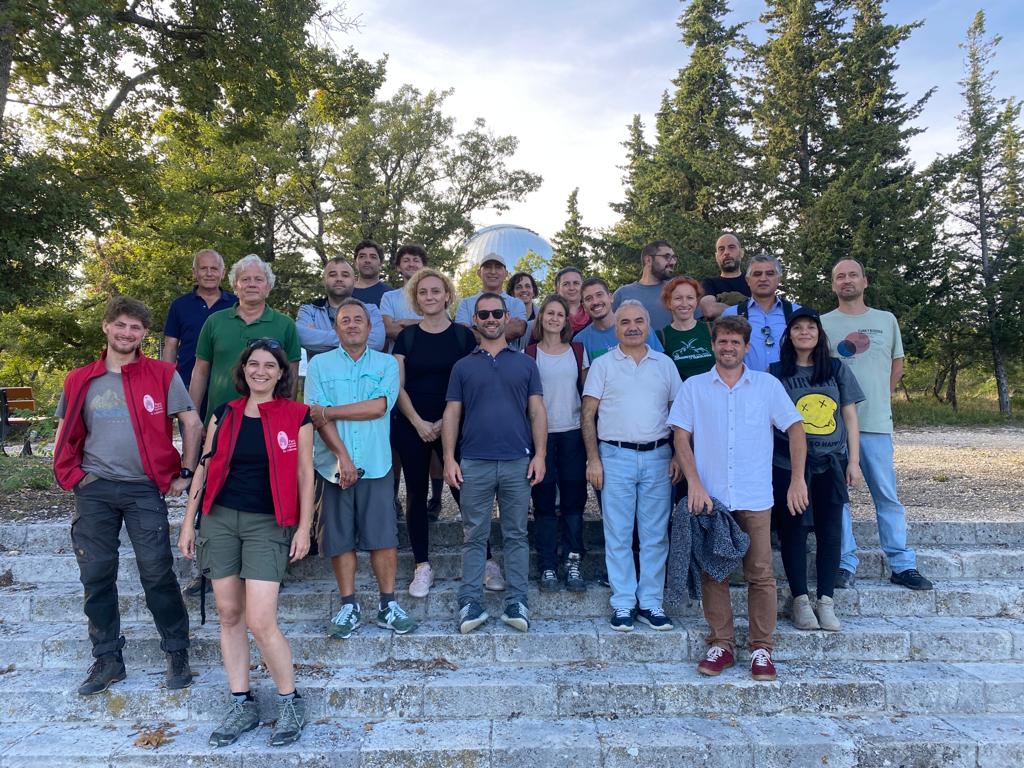MediterRE3: another opportunity to share
and learn from experience of others
The 2-year project aims at promoting Fire-Smart Landscapes (FSL) management
to reduce Greenhouse Gas Emissions in three target Medforval protected areas.
The purpose of the meeting was to disseminate the outputs of the project across the Mediterranean region and to address common challenges and explore possible solutions related to the implementation of fire-smart landscapes (FSL) measures.
Does the FSL management work?
The National Observatory of Athens, partner of the MediterRe3 project, presented the effectiveness of FSL in reducing GHG emissions (WP2), showing how the FSL management in the three target landscapes, will delay and reduce the projected increase in burnt areas due to climate change, and consequently in GHG emissions from wildfires, especially in Greece and Montenegro.
Innovative approaches to Identifying and managing fire-risk areas sustainably
Representatives from the Luberon Natural Regional Park presented a cartographical technic to identify high fire risk areas based on overlaying a map of different combustibility levels of vegetation with a map depicting various risk categories for fire ignition. This methodology serves as a valuable tool for strategically planning Fire-Smart management across the landscapes.
One of the measures already implemented in the Luberon Natural Regional Park is the establishment of a network of firebreaks. In alignment with the project objectives, experts from the Durance Luberon Verdon Intercommunity, recommended employing pastoralism as a sustainable alternative to maintain a low biomass fuel load in the firebreaks network. This approach not only effectively reduces the risk of fire ignition and spread but also brings additional benefits to the local farmers and contributes to the overall biodiversity of the region.

Participants had the opportunity to gain first-hand experience during the field visit which was organised across three distinct locations. Firstly, they explored 240 ha of burnt forests in order to understand the dynamics of fire evolution and restoration operations aimed at encouraging vegetation regrowth. Subsequently they visited a firebreak, understanding its practical implementation and effectiveness. Finally, the field trip concluded at the Saint-Michel Observatory, where participants observed oak (Quercus pubescens) adaptation experiments to climate change.
Think globally
The workshop was also an occasion for the Medforval network to discuss the main challenges and barriers in addressing fire-smart landscape restoration, distinguishing between economic, governance, know-how transfer and cross sectoral fire management barriers. All agreed on the importance to influence policies and to attract funds for the restoration of our landscapes rather than to focus on single landscapes benefits of FLR principles.
Ownership, laws and responsibilities fragmentation as well as lack of cooperation and knowledge gap emerged as key topics during the discussion. This, led to the consciousness that common challenges require a global perspective. Participants acknowledged the need of “think globally”, beyond regional boundaries, drawing inspirations from case studies also far from Europe. Cross-countries collaboration facilitated through networks as Medforval, plays a vital role in collecting experiences and sharing solutions.

edoardo.esposito@istituto-oikos.org
15 November 2023